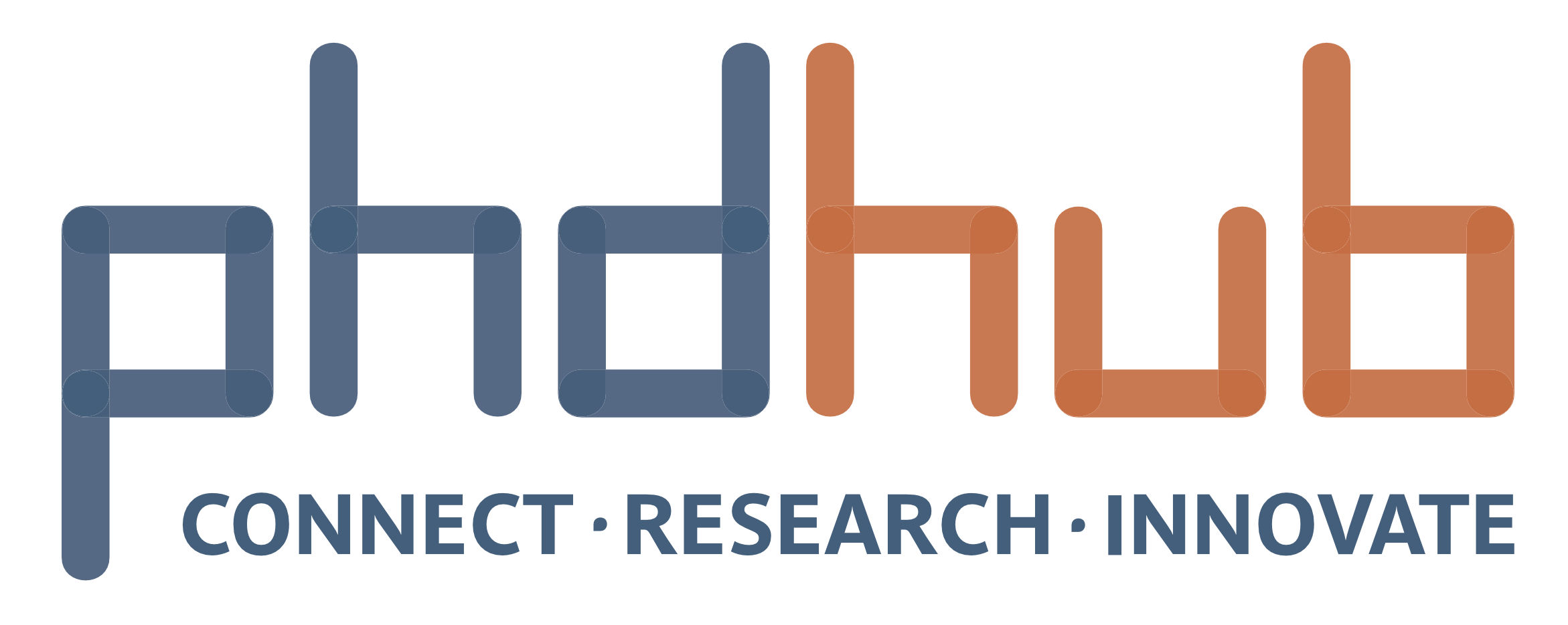The European Doctoral Tuesdays is a series of webinars organised around the thematic of doctoral education and training throughout October.
The first webinar on “PhD Hub for Higher Education Institutions” held on 6 October demonstrated the results of the European PhD Hub platform and Graduate SPIRIT and engaged with the 68 attendees in a discussion around the thematic of Academia-Business cooperation in the doctoral field.
Marie Montaldo (EUF), Ignacio Bravo (UAH), Rehan Bhana (BCU) and Liesbet von Zoonen (EUR) presented various facets of the challenges related to Research and Innovation in Academia, with PhD Hub being a concrete solution to bridging the gap between the two.
Achieving international, intersectoral, interdisciplinary research
PhD Hub is a solution to match the research interests from early-stage researchers (ESRs), researchers and practitioners across Europe. The platform, powered by an enhanced search engine, allows Higher Education Institutions (HEIs) to find relevant business and academic partners to conduct research and provides opportunities to ESRs to apply their research results in Industry and society.
In the current situation, it is important to boost the capacity of HEIs to collaborate at a transnational level and with intersectoral and interdisciplinary components, thus, improving the impact, innovative aspect and transferability of the research outputs. But, how can HEIs achieve this concretely?

★ Exploiting research results with Industry: Rehan call them the “Bluebooks” – they are publications made for Industry stakeholders to understand research. By disseminating those bluebooks, researchers make it easy for potential industrial partners to identify opportunities and new avenues of collaboration with Academia.
Beyond evidence-based communication and popularisation of science that can be both interesting aspects to further develop in Academia, there are alternatives to transferring research outputs in Industry. More and more HEIs are investing in knowledge transfer by creating in-house incubators (e.g. STEAMhouse), R&D labs and innovative industrial doctoral programmes. I More info: Guidelines on University-Business cooperation in doctoral studies
★ Anchoring “Innovation” in doctoral activities: Aside from the common forms of University-Business collaboration (industry guest speakers, internships, etc.), intersectoral activities should be integrated into curricula so it creates early-on and systematic exposure to Industry and societal challenges. Take as examples the PhD Hub Hackathon and European Innovation Fest or the KU Leuven “External stakeholders council”, promoted by Liesbet, where representatives from industry, government, media, and other societal sectors meet with Academia to make recommendations for doctoral training. HEIs should also look at developing recognition of non-academic activities for doctoral candidates and researchers.
★ Cooperation VS. Competition: HEIs are oftentimes in a competitive rather than a cooperative mindset towards one another, which hinders the overall capacity to innovate, research and connect at international level. The set of recommendations published by the Graduate SPIRIT partners underlines the importance of for academic PhD thesis supervisors to encourage ESRs to engage with other institutions and sectors and facilitate connections. The PhD Hub platform in this sense can support HEIs in creating an EU-wide research community with both researchers and practitioners. I More info: Guidelines on international cooperation in doctoral education I Tips & Tricks for triple-I doctoral training
The linkage between doctoral education, training and research and innovation might seem challenging, however, today more than ever, HEIs should consider them all as part of a whole rather than two pieces of a puzzle and start embedding the innovation component into research and education.
Get started with PhD Hub as an Institution
Whether you are a small or large Higher Education Institution, PhD Hub can be the solution to tap into high-impact, industry-driven research. We recommend rolling out PhD Hub in stages, as your institution is ready. Example of a small-scale rollout can be found in our User Manual, which will guide you through all you need to know to start using PhD Hub in your institution. If you’d like to learn more about the PhD Hub Network and start enjoying the full benefits, contact us.

